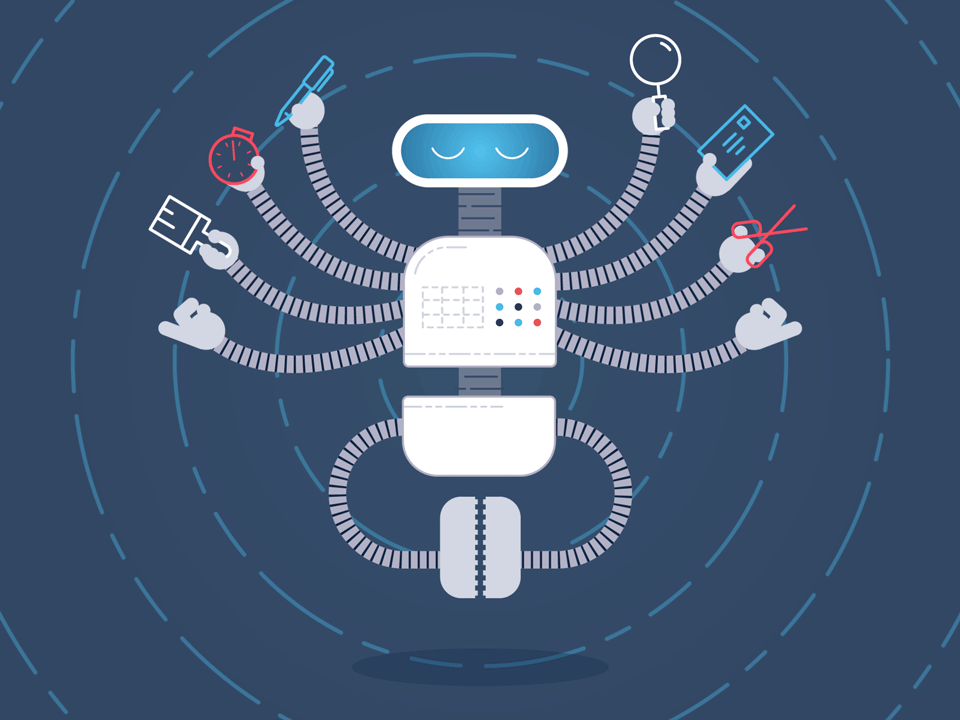Artificial Intelligence (or AI) might sound like something out of a science fiction novel but it’s fast becoming one of the most popular processes marketers are using to track and analyse consumer data. According to the latest email marketing trends, 2020 is the year for AI to really start making an impact. As we head into the new decade, we take a look at what AI means for email and what benefits it will have for marketers.
What is AI?
AI is a technology that simulates human intelligence. It does this by taking in information from its surroundings, then decides a response based on what it learns or senses. It has become an essential part of the technology industry within the last decade and is rapidly becoming a bigger part of our daily lives.
Don’t worry, AI isn’t at a stage where machines will start taking over the world like in The Matrix, and it’s also not going to start replacing humans to do their jobs for them. Regardless of advances in technology, marketing still needs real people who can make decisions, think creatively and be in touch with human emotions. However, AI can make processes much more efficient, especially within email marketing.
How AI is used in email
We’re seeing a huge increase of AI being used to assist with email marketing. So we thought we’d share some of the main elements marketers can benefit from.
Make it personal
Using sophisticated algorithms and data driven insights, AI is able to effortlessly analyse content, making it possible to predict future behaviour and trends. As a result, it can create tailored emails for each individual subscriber without the need for human input, which is great when it comes to promoting things like clothing lines or product types. Using AI reveals better analysis which may not be apparent to the naked eye – imagine how this insight could help guide your marketing efforts. Research has shown that highly personalised emails are 26% more likely to be opened and deliver 6x higher transaction rates.
Segmentation through common interests and behaviours
By identifying patterns and trends within your email marketing, AI can quickly start to segment subscribers into different groups. Whether it’s by preference of email communication type such as newsletters or product promotions, or by demographics or purchase behaviours, you get a much clearer understanding of your customers interests. This in turn makes customising emails much faster and easier than any human could do. Marketers have found a 760% increase in revenue from segmented email campaigns.
Nurture all the way
AI makes it possible for you to easily set up automated campaigns for lead nurturing. By identifying behaviours and events, it works out what content and images will be most relevant depending on the kind of track you’re creating. For example, it could be a series of emails designed to educate your target audience to the features and benefits of a particular product or service, or a consistent flow of similar product types to offer variety and frequency. Both are aimed at driving greater engagement and ultimately conversions, whilst saving on time and effort.
Taking the guesswork out of subject lines
An important factor to campaign success is the subject line. Get it wrong and you may not even get an open. This is where AI can help! Using language technology to gain data-drive insight, it can generate human-like content that really resonates with your subscribers. Not only is this applicable to subject lines, but body copy and CTAs too. This technology helps identify the best words to deliver the best results, whilst maintaining brand language consistency throughout. It’s a no brainer for today’s busy marketers considering emails with personalised subject lines are 26% more likely to be opened (according to Experian).
Optimising send times
We’re all too familiar with the volume of emails arriving in our inboxes, so it’s crucial to understanding the best send time to maximise the chances of an email being opened. Through analysis of past email interactions and behaviours, AI algorithms are able to identify precise send times when recipients are most likely to open an email. It can also configure the frequency they are sent at too – a win win when it comes to boosting engagement.
So what does this mean for marketers?
With over 205 billion emails being sent everyday marketers face a massive challenge when it comes to getting their email to stand out in already crowded inboxes – this is where AI can play a crucial role in campaign success!
Through personalised subject lines, optimised delivery times and carefully curated content, AI will help ensure your campaigns are more effective and relevant to every single subscriber. In addition, using an AI-enabled email marketing system will save you time and effort, freeing you up for other important marketing tasks.
That said, while AI offers a more personalised, relevant experience for the recipient, it can’t guarantee the email will look perfect in every inbox. That’s where specialist email skills come in to play. Using email marketing experts who understand email client rendering capabilities, responsive designs and fallback options is the best way to ensure a quality and impactful user experience.

